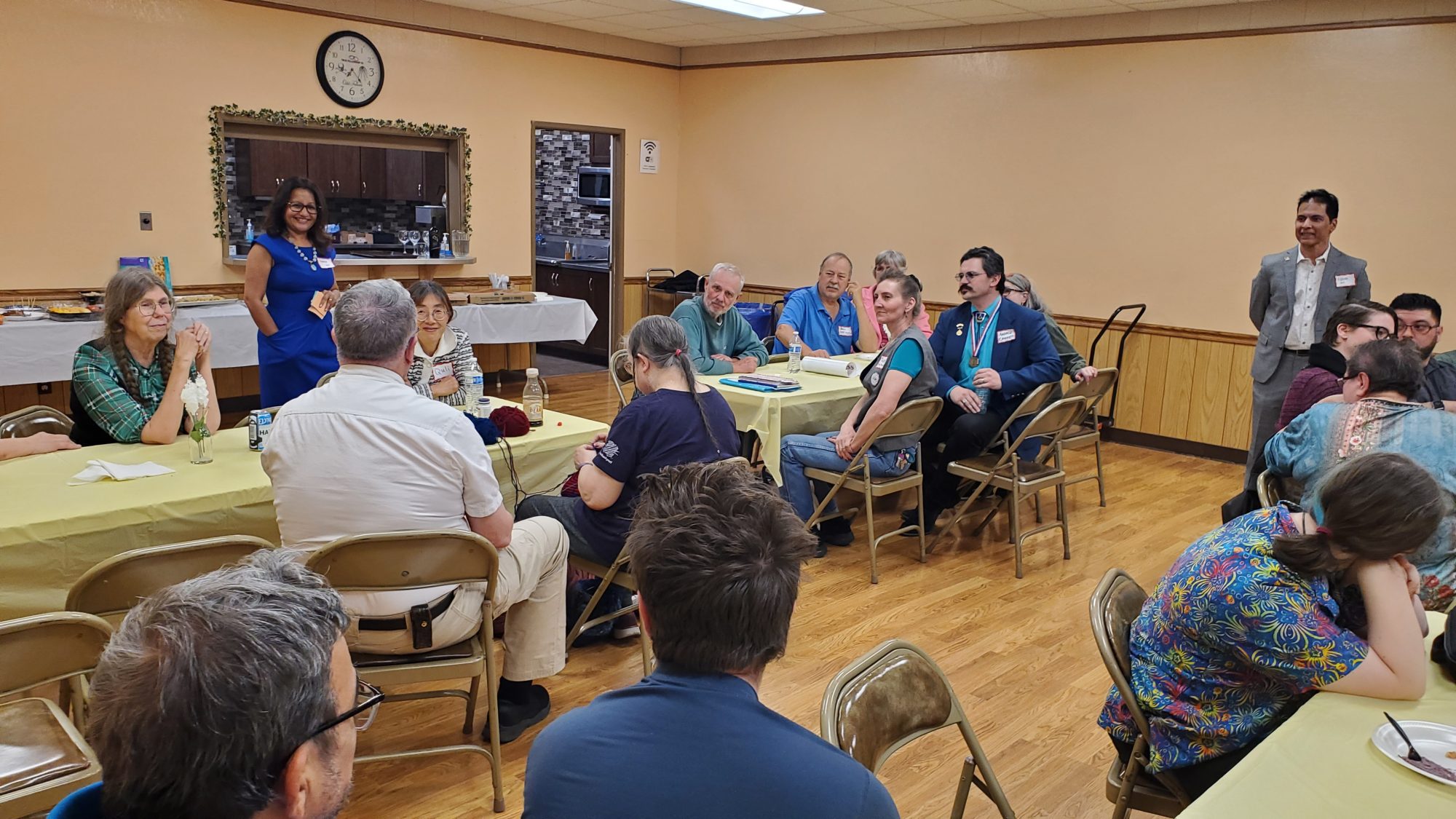“Men exist for the sake of one another. Teach them then or bear with them.” – Marcus Aurelius, Meditations
These words from Marcus Aurelius set the tone for an unusual gathering at San Jose’s Odd Fellows Hall on a balmy Wednesday evening in May. The ‘Leadership Mixer’ sought to explore this very idea: how leadership extends beyond authority to encompass mutual support, education, and patience.
The event was led by a diverse group of experienced leaders and coaches. Mason Wolf and Andrew Crocket, key figures in the Odd Fellows organization, provided the community context that made the event possible. Ganga Tarwady, a NeuroLinguistic programming coach known for transforming deep-seated patterns, brought her expertise in personal growth. Kayvan Sylvan, a long-time practitioner and leader in personal and professional development organizations, offered insights from decades of empowering others. This blend of perspectives, from personal development to community building, set the stage for a rich and multifaceted discussion on leadership.
As more and more people entered the room, the air was humming with happy noises and conversation.
People from many walks of life interacted around platters of potluck dishes, including experienced executives, curious students, and community organizers, as well as political officeholders and aspiring politicians seeking office.
As we started, the crowd organized around tables to form seminar-style discussion groups. The room was full and the upbeat anticipatory energy was palpable. There was an immediate sense of kinship and community. What brings such a diverse group together?
The answer, it turns out, is deceptively simple: a shared curiosity about leadership.
As the formal part of the evening began, we posed a seemingly straightforward question:
“What is leadership?”
The responses came quickly, each one illuminating a different facet of this complex concept:
“Setting a good example.”
“Being of service.”
“Empowering others.”
“Organized courage.”
With each answer, I found myself nodding along. Yes, leadership is all these things. But as the conversation deepened, a more nuanced picture emerged.
One attendee, a soft-spoken woman named Lisa, shared an insight that stuck with me: “I learned that I’m not good at being in the lead. I work better at being the mentor that helps them. That’s what I really do best and enjoy doing: helping the quote-unquote leader be the best leader they can be.”
Her words challenged the traditional image of a leader as the person out front, making all the decisions. Instead, she painted a picture of leadership as a collaborative effort, with different roles all contributing to a shared goal.
Embodying “leadership,” in the sense of being someone who makes a difference, doesn’t have to look like being the “lead” person. Being in the supporting role in partnership with others is a valuable expression of leadership.
One individual discussed the importance of showing up for your team, even in areas outside of your expertise. “When you donate your time to whatever they are interested in, when you show up and help make that successful. That’s what matters,” added the gentleman.
As the evening progressed, I found myself pondering other universal questions:
- What exactly is leadership if it is more than just being in charge?
- How do we develop the kind of leadership that lifts entire communities?
Perhaps the most profound insight came from an unexpected source: a debate about American society. “We don’t tend to say we are stuck in the traditions that got us to where we are,” one participant noted. “It is okay to change. We don’t have to blindly follow in the footsteps of others.”
Isn’t great leadership defined by a readiness to question, adapt, and establish new paths?
The questions we explored don’t have easy answers. Perhaps that’s the point. True leadership, it seems, isn’t about having all the answers. It’s about having the courage to keep asking the questions.
Some questions to ponder yourself, or in brainstorming discussions with others:
- What is leadership?
- What do you think about leadership?
- What are the qualities of a leader?
- Should a leader be interested or interesting?
- What’s one thing about American culture that you love?
- What is the most valuable leadership lesson you’ve learned?
- What new skills will leaders need in the future?
- What is something that you did not expect to happen in leadership but it did?
- What do you think are the qualities of a leader coming from values?
The Leadership Mixer may have ended, but it was only the beginning of a larger journey—the continual practice of implementing leadership concepts in our daily lives. Having engaged in these questions with the group, I was left with a new perspective on the topic of leadership.
Real leadership goes beyond the workplace and politics. It’s not so much about your job or title as it is about how your acts affect people in real life. As an Odd Fellow, you can express your leadership by being involved in your community, volunteering for events and good causes, and follow the timeless ideals of Friendship, Love, and Truth.
The San Jose Odd Fellows’ leadership committee aims to train and develop community leaders. We facilitate engaging and fun conversations, like those at the Leadership Mixer. Stay tuned for upcoming Leadership Committee events!
The next Leadership Committee event is a fundraiser burger fry and movie night, happening on July 31st. You are invited to join us! Come meet us and play with us as we continue to create fun events for the membership that are also impactful and benefit you and your community.
